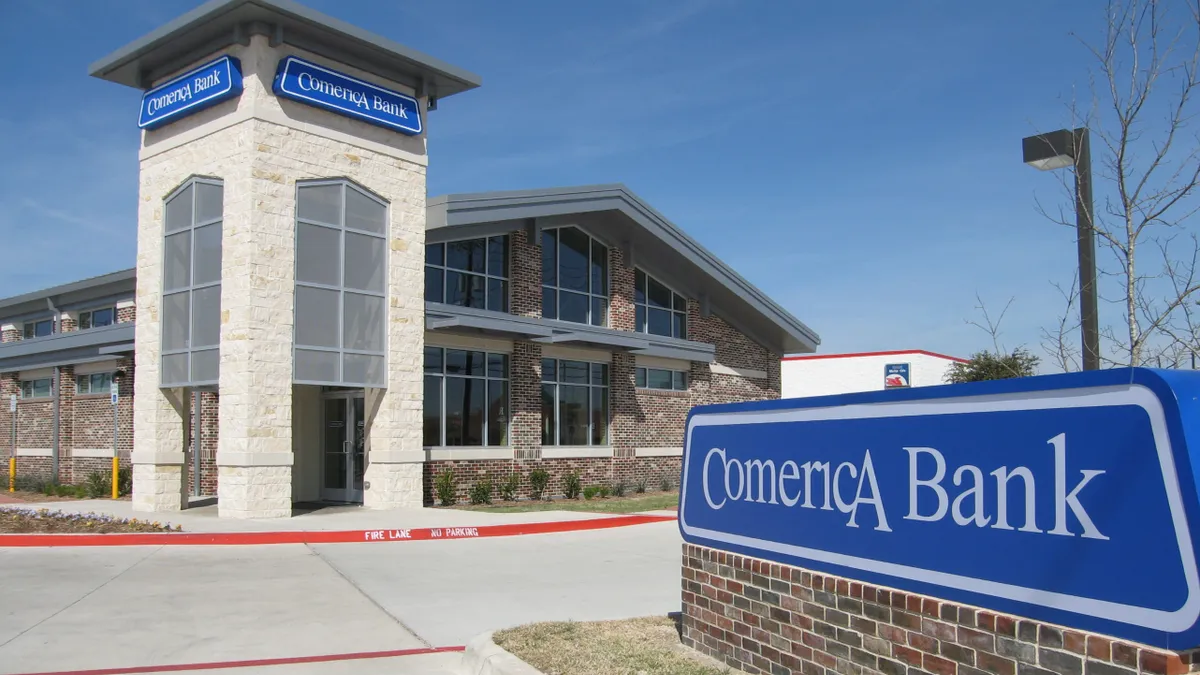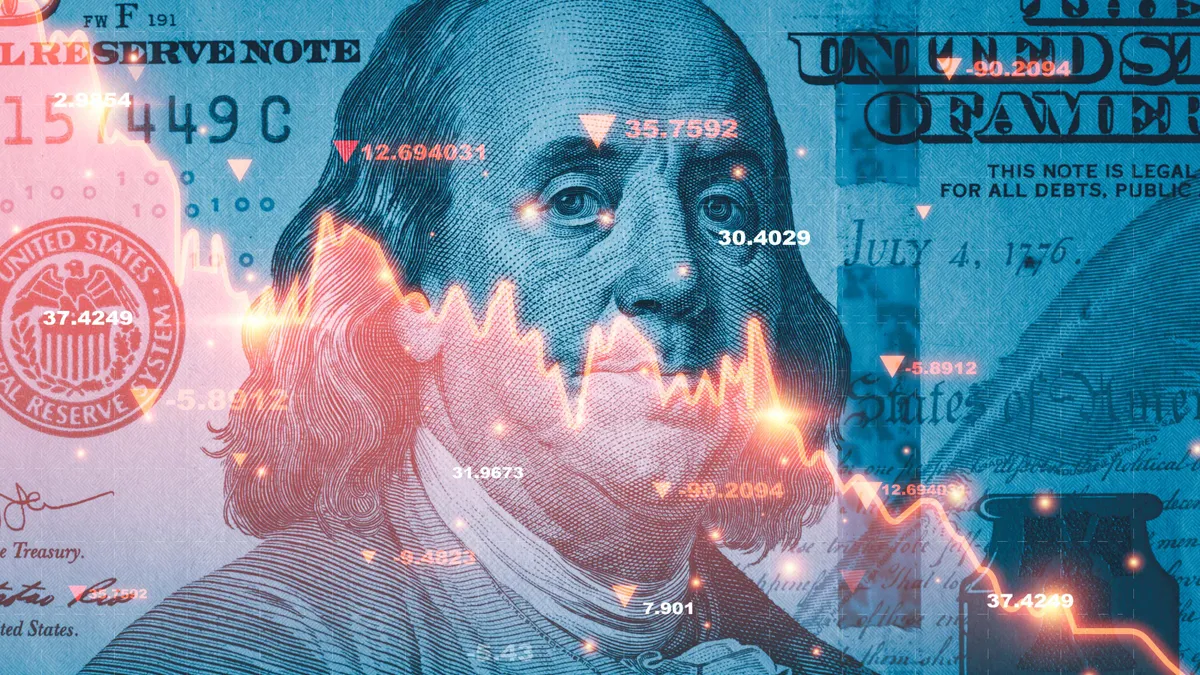Antitrust opposition to Capital One’s $35.3 billion proposed acquisition of Discover is already taking form, even as some argue the deal could increase network competition.
With the all-stock deal, announced Monday, McLean, Virginia-based Capital One is paying a 26.6% premium for the fourth-largest card network, based on Discover’s $110.49 closing share price Feb. 16. The tie-up is expected to close late this year or early next.
But the unique quality of the deal — a major financial institution acquiring an issuer-network, of which there are only two — is likely to draw attention, and almost certainly raise antitrust concerns. “The Department of Justice is clearly going to look at the market concentration impact of this combination,” said Steptoe attorney Stephen Aschettino.
The Biden administration has been paying close attention to mergers that potentially limit consumer choice or pricing, and Sen. Elizabeth Warren, D-MA, called for regulators to block the deal in a Tuesday post on social media site X.
In Riverwoods, Illinois-based Discover, Capital One gains a network of 70 million merchants and 305 million cardholders, giving it the qualities rival Amex has.
“A network is a very, very rare asset,” Capital One CEO Richard Fairbank said during an investor call Tuesday. “We have always had a belief that the holy grail is to be able to be an issuer with one’s own network.”
Approval applications for the acquisition will be filed with both the Federal Reserve Board and the Office of the Comptroller of the Currency in the next couple of months, Fairbank said Tuesday.
“We believe that we are well-positioned for approval,” he told analysts. He declined to share details of conversations with regulators, but said “we, of course, kept them informed along the way.”
Attorneys expect approval could take longer than the companies envision. “I would predict this would be more like a 12-month process, at least,” said Joe Silvia, a Chicago-based partner with law firm Dickinson Wright.
There will be discussions between regulatory bodies, and between regulators and the companies, and potentially an opportunity for public input, said Silvia, who advises financial institution clients on mergers and acquisitions. The industry has seen more protracted approval timelines for larger transactions in the past five years, he noted.
Antitrust concerns
The acquisition would make Capital One the biggest card issuer in the U.S., giving it a 19% share of the $1.3 trillion revolving consumer loan market, eclipsing JPMorgan Chase’s 16%, American Banker reported.
“I think antitrust is probably first and foremost on the list of hurdles that Capital One is going to have to get past, and that could take a while,” Aschettino said, adding that he expects “the whole alphabet soup” of regulatory agencies to be involved in the deal’s approval, including the Federal Trade Commission and the Consumer Financial Protection Bureau.
The DOJ is likely to play a bigger role in reviewing this acquisition because the department has “a long line of guidance and case law as to how they implement the Sherman Act and the other antitrust legislation, to talk about competitive effects and barriers to entry and pricing,” said Carl Goss, a Dallas-based partner in the banking area at law firm Hunton Andrews Kurth.
From an antitrust perspective, bank regulators will assess pre- and post-merger market share for the companies, as well as the companies’ geographic reach and future prospects for the credit card issuing market, attorneys said.
Silvia expects plenty of discussion on the benefits versus costs of the fourth-largest credit card issuer acquiring the sixth-largest issuer.
“It’s going to be a heavy-handed review,” he said. The DOJ has said it’s increasing scrutiny of bank mergers, and the OCC seeks to slow down the merger process.
It’s likely Capital One and Discover have contemplated the possibility of divestitures to smooth the way for approval, attorneys and consultants said. Discover in November said it’s selling its student loan portfolio.
Although the transaction will draw more regulatory scrutiny, Mihir Bhatia, a Bank of America securities analyst, doubts big-name rivals such as JPMorgan Chase, American Express, Citi and Wells Fargo will find themselves unable to compete with a combined Capital One-Discover.
“It’s hard to argue it’s not going to be competitive,” he said.
More network competition
While the acquisition is expected to stir up antitrust concerns, it could also present card network giants Visa and Mastercard with more competition on the network side.
Capital One’s debit cards now run on Mastercard’s network, and all of that volume will move to Discover’s network, Capital One executives said Tuesday.
Some portion of Capital One’s credit cards will move to Discover’s payment rails, as well, Fairbank said. Capital One issues cards on both the Visa and Mastercard networks, with about 42% of the bank’s credit cards running on Visa and 58% on Mastercard, as of 2022, according to Bank of America analysts.
“The reason for Capital One to do the deal is the network,” Bhatia said, adding that Discover’s closed-loop network offers better economics, and Capital One could take advantage of Discover’s exemption from the Durbin Amendment regarding debit interchange.
Capital One acquiring and boosting the smallest card network is “almost pro-competitive,” Bhatia said.
Although the DOJ and bank regulators will approach the deal more broadly, the move could satisfy concerns from Sen. Dick Durbin, D-IL, about the Visa-Mastercard duopoly.
“This is definitively the competition that he’s calling for” with the proposed Credit Card Competition Act legislation, said Tony DeSanctis, a senior director at consulting firm Cornerstone Advisors.
Capital One executives see the purchase strengthening Discover’s network, and consultants and analysts expect Capital One will invest to scale that asset. The possibility that the network becomes a more viable competitor to Visa and Mastercard could tip the scales in favor of the deal’s approval, said Jonathan Lazarow, a partner and corporate group co-chair at law firm Ambrose, Mills & Lazarow.
Capital One executives pointed to that opportunity during Tuesday’s call, saying the company seeks to give Discover’s network “a chance to get threshold, scale, pick up momentum.”
Attorneys expect Capital One to emphasize that aspect in its conversations with regulators.
“Yes, there’s some consolidation, but it means that we can force the bigger players to compete, which you think would be good for competition,” Goss said.























